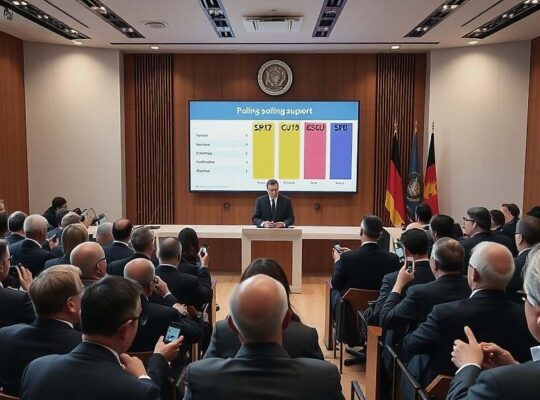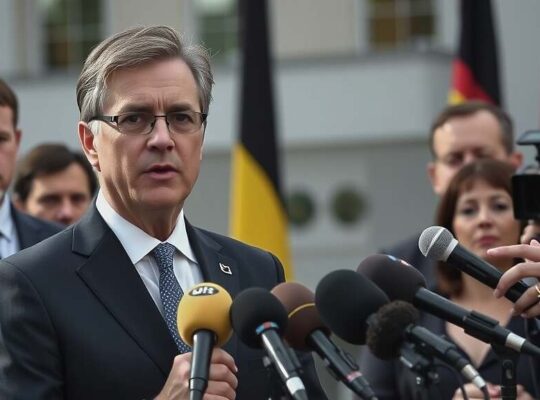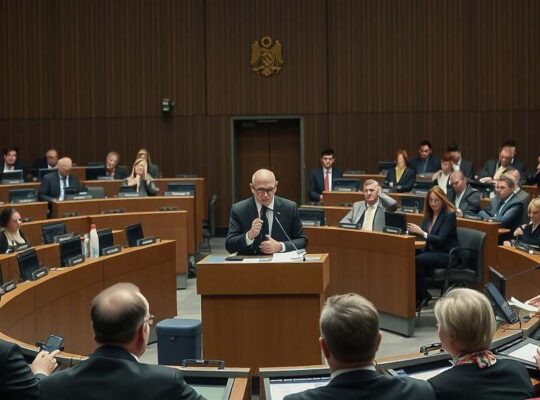The simmering tensions within Germany’s governing coalition are reaching a critical point as factions within the Social Democratic Party (SPD) contemplate a member-driven initiative to challenge the planned overhaul of unemployment benefits, commonly known as “Bürgergeld”. The Christian Democratic Union (CDU), the leading force within the “Union” bloc, appears unfazed by the potential internal SPD rebellion, dismissing it as an expected consequence of coalition politics.
Speaking to the “Rheinische Post” CDU parliamentary secretary Steffen Bilger signaled a stance of resolute continuation, asserting that internal SPD debates will not derail the implementation of what he deemed “necessary reforms”. His comments served as a pointed reminder that the proposed changes to the Bürgergeld system originated from Bärbel Bas, the SPD’s own federal labor minister and co-chair of the party.
Bilger’s remarks highlight a strategic maneuver to deflect criticism of the reform, diverting attention from the CDU’s role and placing responsibility squarely on the shoulders of Bas. However, the situation underscores a deeper fault line within the coalition. The proposal initially enjoyed widespread support within the SPD base less than six months ago, as outlined in the joint coalition agreement. The current dissent suggests a growing unease with the scope and potential consequences of the reforms, particularly amidst concerns regarding affordability and potential impacts on vulnerable populations.
While the CDU’s public dismissal attempts to project an image of strength and unity, the possibility of a formal challenge from within the SPD indicates a fragile consensus. The internal maneuvering exposes complexities in coalition governance and raises questions about the long-term viability of the agreement between the traditionally disparate political ideologies of the Union and the SPD. The coming weeks will be crucial in determining whether this internal dissent escalates into a full-blown political crisis or is successfully managed within the confines of the governing alliance.












